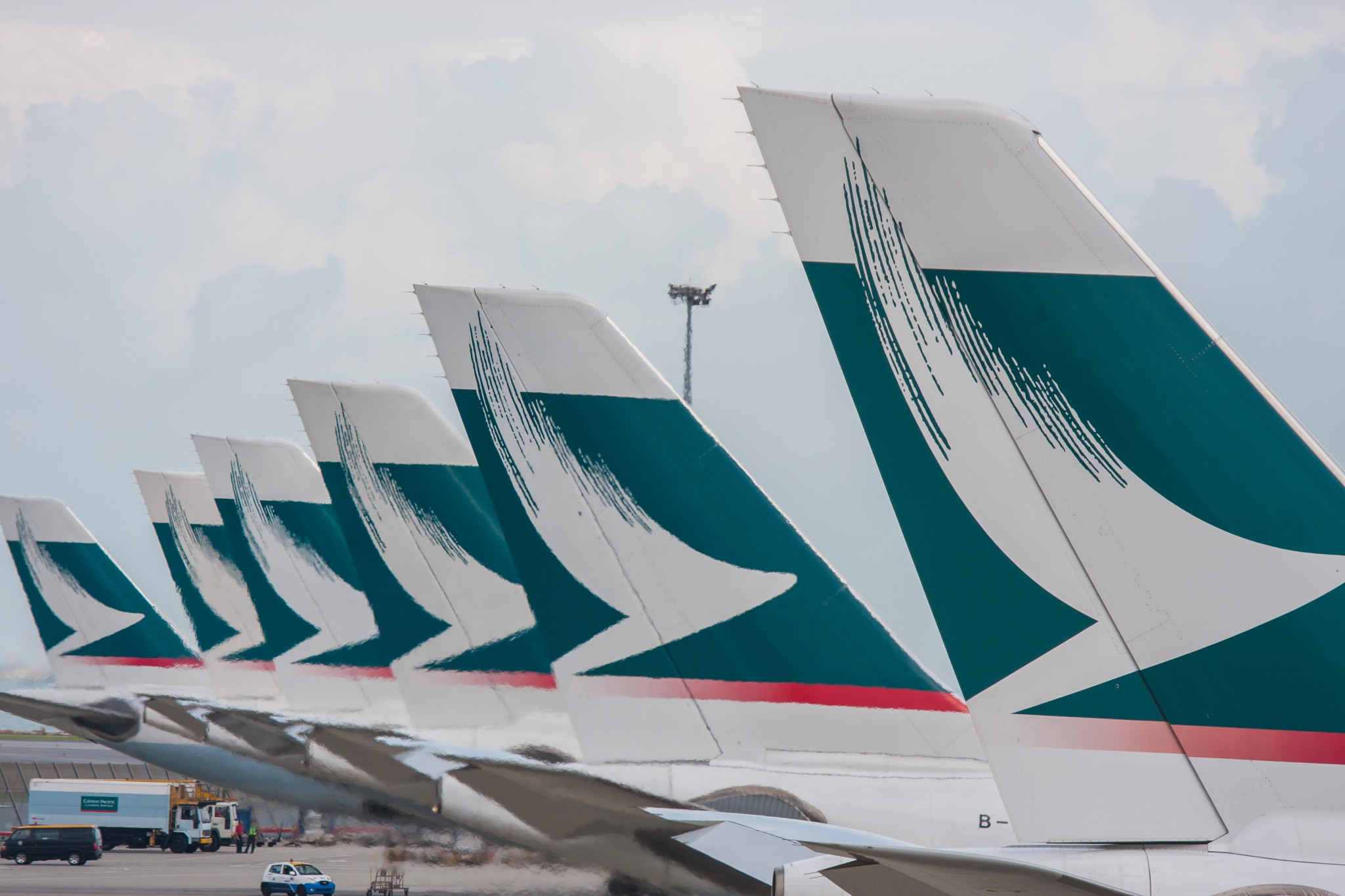Cathay Pacific carried a total of 37,815 passengers in November 2020, a decrease of 98.6% compared to November 2019. The month’s revenue passenger kilometres (RPKs) fell 97.9% year-on-year. Passenger load factor dropped by 61.5 percentage points to 18.5%, while capacity, measured in available seat kilometres (ASKs), decreased by 90.9%. In the first 11 months of 2020, the number of passengers carried by Cathay Pacific and Cathay Dragon dropped by 85.8% against a 77.7% decrease in capacity and an 83.8% decrease in RPKs, as compared to the same period for 2019.
Cathay Pacific carried 116,853 tonnes of cargo and mail last month, a decrease of 34.3% compared to November 2019. The month’s revenue freight tonne kilometres (RFTKs) fell 26.2% year-on-year. The cargo and mail load factor increased by 9.0 percentage points to 77.7%, while capacity, measured in available freight tonne kilometres (AFTKs), was down by 34.7%. In the first 11 months of 2020, the tonnage carried by Cathay Pacific and Cathay Dragon fell by 34.3% against a 35.3% drop in capacity and a 27.2% decrease in RFTKs, as compared to the same period for 2019.
Cathay Pacific Group Chief Customer and Commercial Officer Ronald Lam said: “We are still not seeing any meaningful improvement in our passenger business. On average, we carried just 1,261 passengers per day and load factor remained low at 18.5% – both marginal increases over October.
“While we saw reasonably good traffic coming back to Hong Kong from Canada and Australia, this was prior to the implementation of new government quarantine requirements in the middle of the month. Meanwhile, overall demand on long-haul routes, particularly the UK and continental Europe, remained weak owing to the ongoing impact of COVID-19 in many European countries.”
“Regionally, certain markets performed slightly better. The uptick in traffic to and from Indonesia that we had been seeing in October continued into November. Demand from the Chinese mainland for flights to Japan was also promising with it being particularly noticeable on our newly resumed Osaka flights. And while the postponement of our Hong Kong-Singapore Air Travel Bubble (ATB) flights was disappointing, we fully support the decision of the authorities and have resumed our previous schedule of three non-ATB flights per week to and from Singapore until the end of December.”
“Cargo demand further strengthened in November, largely driven by strong e-commerce traffic as well as solid movement of electronic products, perishables and automotive shipments across our network. We also continue to work on customised solutions for our business partners and notably we have commenced a series of chartered freighter flights serving Riyadh in Saudi Arabia.”
“We have been utilising our freighter resources to their fullest while also mounting 728 pairs of cargo only passenger flights. This was 152 pairs – or 26% – more than we operated in October, and 30 of these carried cargo in the passenger cabins. Meanwhile, load factor remained high at 77.7%.”
“Looking ahead on the passenger front, we still are not seeing significant demand for travel as we head towards the end of 2020 – traditionally a strong travel season in the year. Demand continues to weaken on long-haul routes and we anticipate we will rely more on traffic on regional services in the immediate future. Given the slow speed of recovery, we expect to operate about 9% of pre-COVID-19 capacity in December and slightly above 10% in January 2021.
“The December capacity results in the average capacity for the second half of 2020 being 8.4% of pre-COVID-19 level, compared to the average capacity of 34.3% in the first half. This, together with the additional restructuring and impairment costs announced in October, and further aircraft impairment at year-end, is expected to result in the second-half losses being significantly higher than the first-half losses reported in our interim accounts.
“From a cargo perspective, we will soon launch a seasonal cargo service into Hobart in Australia beginning mid-December to support exports of fresh produce from Tasmania into different parts of Asia. In terms of specialised products, the airline along with our cargo terminal and ground-handling subsidiaries have been re-certified with IATA’s CEIV Pharma accreditation, and we are actively preparing ourselves to meet the challenge of shipping temperature- and time-sensitive vaccines across our network when the time arises.”

